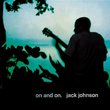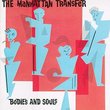| All Artists: Cat Stevens Title: Numbers Members Wishing: 5 Total Copies: 0 Label: A&M Release Date: 2/13/2001 Album Type: Original recording remastered Genres: Folk, Pop, Rock, Classic Rock Styles: Singer-Songwriters, Soft Rock, Folk Rock, Album-Oriented Rock (AOR) Number of Discs: 1 SwapaCD Credits: 1 UPCs: 731454689021, 0731454689021, 075021455542 |
Search - Cat Stevens :: Numbers
 | Cat Stevens Numbers Genres: Folk, Pop, Rock, Classic Rock
The legacy of singer-songwriter Cat Stevens is a distinct dichotomy: though he built his fame on a string of hit singles and bestselling albums, he seems as famous now for turning his back on that stardom for a life devote... more » |
Larger Image |
CD DetailsSynopsis
Amazon.com The legacy of singer-songwriter Cat Stevens is a distinct dichotomy: though he built his fame on a string of hit singles and bestselling albums, he seems as famous now for turning his back on that stardom for a life devoted to Islam, education, and charity. But Stevens's latter-day willingness to explore that past (finally allowing his original '70s albums to be remastered and reissued) only reinforces the old adage that hindsight is usually 20/20; some of the later collections that seemed so idiosyncratic at the time of their original releases now seem but part of the artist's larger spiritual quest. Nineteen seventy-five's Numbers is a good case in point, ostensibly a whimsical concept album (subtitled "A Pythagorean Theory Tale" and bearing a "WARNING: This album is not to be taken 2 seriously" advisory) about a distant planet whose inhabitants are charged with distributing numbers to the rest of the universe. Stevens sets up the tale in a fancifully illustrated booklet, leads off with the sprightly instrumental "Whistlestar," and then lets its characters inhabit a tellingly introspective slate of songs. Set against spare backdrops that subtly evoke everything from folk to baroque (incorporating sidemen like sax notable David Sanborn and Art Garfunkel), those protagonists mouth restless spiritual and existential concerns not unlike the singer's own. Stevens also produced this fairy tale for children of all ages, insuring Numbers a very personal space in his canon, whether he took it "2 seriously" or not. --Jerry McCulley Similarly Requested CDs
|
CD ReviewsMy FAVE ALBUM BY CAT Roger | Castles | 09/27/2003 (5 out of 5 stars) "This is a truly overlooked masterpiece. I can listen to it over and over again and never get tired at all. Since the very first song "Whistlestar" you are taken to a journey, through sounds and music. "Novim's Nightmare" is certainly the finest piece in the album and one of the best songs by Cat Stevens, mysterious and gentle with a great production. "Jzero" is such a lovely piece and "Home" beautiful. This album has no filler, you can just push play and be sure you will enjoy every single track. My fave album by Cat. ... one more thing about the review "Hokus Pokus" by tnahpelle from Australia, you may need new ears or brain ;-)" Haunting. The Tru Man | 08/17/2006 (4 out of 5 stars) "Reading reviews on other websites, it would seem this album is a weaker effort by the always searching songwriter Cat Stevens. Filled with folky tracks and even a few dancier tunes, that tell a story about the distant planet where "nine" is an unlucky number, among other things, is artistically and carefully put together, and each song has it's own rhyme and reason. "Whistlestar" is a pleasant and catchy intrumental tune that actually sounds like it's title, and is a great album opener. "Novim's Nightmare" follows the thoughts of a character and his inability to fit in with his "others." It has a nice verse and chorusm diction to it, and haunting tune, like most of the songs do. "Majik of Majiks" and "Drywood" go back to the folk roots that Stevens was famous for coming up with. Each tell s story about the planet of the story the album follows, but also hold their own and could be considered radio friendly. Side Two (or as it is known on the album, Side 0) Starts off with "Banapple Gas." This is a device that people smoke or sniff, that is said to be healthy, but due to sarcasm, this could be an allegory for marijuana. Nice tune, and bouncy and catchy at that. "Land of Freelove and Goodbye" is a real highlight of the album, with a very sentimental tone and great beat to it. "Jerizo" is a conversation between the title character, about life. "Home" while not as sentimental as it would sound, is all in the title, appreciations and all. The last track is alright, but gets a little forgotten in the hype of the other music. Nice piece of music for all kinds of music lovers, and very haunting with it's tone and artwork, both of the album cover and story. Should be entertaining, if not as accessible as Stevens' other work. 4.5 Stars" Complicated-hard at first-better each time you hear it Devon Cattell | California | 11/14/2002 (5 out of 5 stars) "From a purely musical point of view, not lyrics, I think this is on of the best albums of all time. The lyrics are a bit frustrating because they only tell a small part of the story and even with the original album abstracts from the book, you don't get a clue what happens in the story.On the other hand, it's a fantastic mixture of complicated (by rock standards) music theory. It uses unusual chord progressions, changes in meter (3/4 time, 4/4 times), changes from major keys to minor keys, and mixes many different kinds of unusual instruments. He makes the guitar sound like a harp interweaving the melody with the piano, vocals and other instruments. Plus, my favorite Cat Stevens trademark-lots of syncopation, not only achieved in the vocals, but all of the other instruments as well.All and all, I think I could dance to it - I give it a 10."
|

 Track Listings (9) - Disc #1
Track Listings (9) - Disc #1








